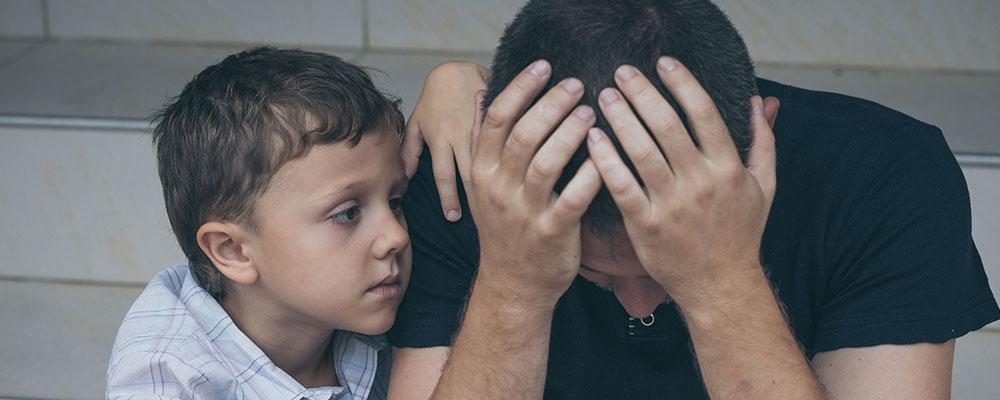
Dads and Domestic Violence

How Fathers Can Address Acts of Domestic Abuse or False Accusations
Nobody wants to believe that domestic violence or abuse occurs in their home, among family members or friends, or in their community. Unfortunately, spouses, family members, people living in the same home, or former partners commit abuse all too often. While men are typically thought of as the partner who is more likely to be abusive, they can also be the victims of abuse. If your ex has acted abusively against you or your children, you'll want to understand your legal options and the role that their abuse may play in the divorce process.
Forms of Domestic Abuse
Domestic violence and abuse can take many forms, and it is not always obvious. In many people's minds, domestic violence consists mainly of physical abuse in which one partner physically strikes or injures the other, or when children are placed at risk of physical harm. While a woman may be less likely to take action to physically harm her spouse, this type of abuse does occur. In addition to hitting, slapping, shoving, biting, choking, or shaking her partner or children, an abusive wife may use weapons such as knives or clubs, or she may take other physical actions, such as poisoning, depriving you or your children of food, destroying or damaging property, or threatening to harm you, your children, or your pets.
While physical violence may occur, women are more likely to commit other types of abuse, including verbal or emotional abuse. Your wife may verbally berate you or your children by yelling, calling you names, insulting you, or humiliating you publicly, such as by belittling you in front of friends or family members. She may also act manipulatively by giving or withholding affection inconsistently, threatening to harm herself if she does not get her way, or disregarding your or your children's needs.
Control as Abuse
Abuse is often all about the desire to be the person who is in control of a relationship, and an abuser may take a variety of actions meant to maintain control over you and your children, such as constantly checking to see where you are and who you are with or monitoring your phone calls, text messages, emails, or other forms of communication. She may attempt to isolate you or your children from other friends or family members so that she is your only means of support, and she may maintain control of the family's finances to prevent you from being able to support yourself if you leave the relationship.
Even if you do leave an abusive relationship, your wife may commit acts of stalking or harassment in an attempt to maintain control over you. This could include calling you constantly or sending a large number of text messages or emails, attempting to access your computer or online accounts, or monitoring you electronically by placing a video or audio recording device in your home or vehicle.
If you have been the victim of any form of domestic abuse, you should be sure to understand your options for leaving the relationship. If you or your children are at risk of physical or emotional harm, you may be able to obtain an order of protection or restraining order that will prohibit your ex from committing any further acts of abuse. In many cases, a restraining order will prohibit your ex from contacting you or your children, and she may be required to pay spousal support or child support, leave the family home, turn over certain property, or repay you for damages and expenses that were the result of abuse. As you proceed with your divorce, you can make sure your ex's abuse is considered when making decisions about child custody and visitation.
False Accusations of Abuse
Unfortunately, since men are often seen as more powerful and dominant than women, a husband who has suffered domestic abuse may feel that people will not believe him. Things may become even worse if a wife makes accusations of abuse or takes steps to obtain a restraining order as a way to gain an advantage in the couple's divorce. If this has happened to you, it is essential to secure representation from a skilled family law attorney who can defend you against false orders of protection. Your lawyer can help you understand the best steps to take to demonstrate that you have not acted abusively while working to protect your relationship with your children. With an attorney's help, you can complete the divorce process successfully and make sure you and your children are protected from any further harm.











